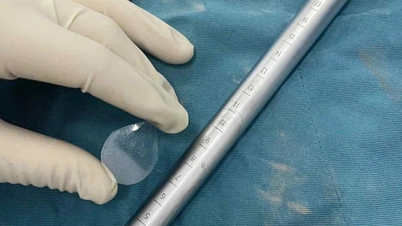Plain yogurt provides low carbohydrates, high protein, fat and good bacteria for diabetics.
Provide calories
Calories in 100g of yogurt range from 100-230 calories or more, depending on the fat and sugar content. Additions such as fruit syrup, honey, jelly or toppings such as granola, crispy rice flakes increase the calorie count. A reasonable serving size is around 100-150 calories.
Provides low carbohydrates
Diabetics should choose plain yogurt, with little or no sugar. This yogurt is rich in protein but has less carbohydrates (carbs), and has a lower lactose content than other types. This makes it easier for diabetics to digest, especially for those who are lactose intolerant.
According to the US Department of Agriculture , plain yogurt has about 25% less carbs than regular yogurt. Patients should limit adding sugary foods such as condensed milk, chocolate, and ice cream to yogurt to avoid increasing the amount of carbs. The ideal snack for patients is about 10-15 grams of carbs.

Yogurt is rich in probiotics that are good for the digestive system and reduce blood sugar. Photo: Freepik
Rich in protein
Protein is essential for all muscles and tissues and is a great source of energy for the body. For people with diabetes, protein slows down the rate at which glucose (sugar) enters the blood, thereby helping to balance blood sugar levels, increase the feeling of fullness for a long time, and support weight loss.
Greek yogurt is typically the highest in protein, with about 16g of protein per 170g container. Regular yogurt has about 9g of protein per 170g serving.
High in fat
The fat in yogurt also slows the absorption of glucose and keeps you full longer, aiding in blood sugar control. This nutrient is also needed for the body to absorb vitamin D and calcium. Choosing low-fat or fat-free varieties can reduce total calories and saturated fat intake.
Provide probiotics
Probiotics are live microorganisms that help improve the balance of intestinal bacteria.
According to a 2021 review by Chulalongkorn University, Thailand, and several other organizations, based on 28 studies, more than 1,900 participants, probiotics have a hypoglycemic effect in people with type 2 diabetes. The effect is stronger in people with poorly controlled diabetes and not using insulin.
A 2017 study by the Golestan University of Medical Sciences, Iran, on 90 type 2 diabetes patients, showed that people who consumed 100g of probiotic yogurt every day had lower blood sugar, cholesterol and diastolic blood pressure (the pressure of blood on the vessel walls as blood returns to the heart). lower than people who do not eat yogurt.
Patients should limit sugary yogurt, fruit, and jelly. Plain, full-fat yogurt or low-fat, sugar-free yogurt rich in probiotics is a better choice. Yogurt should be eaten with berries, seeds, and whole grains in moderation. Use yogurt as a dip, in cakes, smoothies, salads, and seasonings to maximize the benefits of this food.
Mai Cat (According to Everyday Health )
| Readers ask questions about diabetes here for doctors to answer |
Source link



![[Photo] Hanoi morning of October 1: Prolonged flooding, people wade to work](https://vphoto.vietnam.vn/thumb/1200x675/vietnam/resource/IMAGE/2025/10/1/189be28938e3493fa26b2938efa2059e)


![[Photo] President of the Cuban National Assembly visits President Ho Chi Minh's Mausoleum](https://vphoto.vietnam.vn/thumb/1200x675/vietnam/resource/IMAGE/2025/10/1/39f1142310fc4dae9e3de4fcc9ac2ed0)
![[Photo] Keep your warehouse safe in all situations](https://vphoto.vietnam.vn/thumb/1200x675/vietnam/resource/IMAGE/2025/10/1/3eb4eceafe68497989865e7faa4e4d0e)

























































































Comment (0)